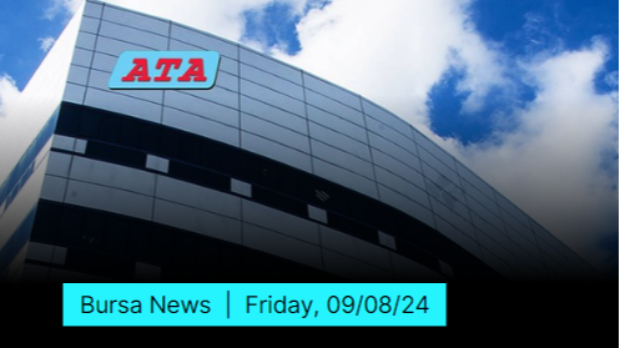‘Robots don’t sneeze’: Hotels, hospitals, offices turning to delivery bots during coronavirus pandemic
Tan KW
Publish date: Mon, 12 Oct 2020, 01:31 PM
The next time you order hotel room service, you may receive a buzz on your phone rather than a knock on your door.
As the hospitality industry struggles to adapt to changing consumer behaviour during the coronavirus pandemic, many hotels are turning to room service robots to help wary travelers feel more at ease.
“Guests now think of it as a perk to not have a person come to their room,” said David Wang, director of sales and marketing at the Crowne Plaza San Jose - Silicon Valley hotel, in Milpitas. “So the less human interaction we have, the better.”
Such service bots have been around for years, helping hotels slim down on room service delivery time. But with the pandemic twisting norms across the spectrum of human interaction, more businesses have expressed interest in leasing them. In the last six months, inquiries have quadrupled at Savioke, the San Jose company that manufactures the bots, according to Bill Booth, the company’s head of sales and marketing.
“The robots don’t sneeze, as we say,” Booth said.
Savioke leases out about 100 bots to more than 80 US hotels, several of which are in the Bay Area, and has clocked upwards of 700,000 deliveries across its fleet since it launched seven years ago. Hotels in Los Angeles, Las Vegas and elsewhere have recently put in robot orders, Booth says. Hospitals, high-rise office and apartment building managers have also been calling.
The company is the brainchild of Steve Cousins, former CEO of the Willow Garage robotics incubator in Menlo Park, which closed in 2014. Savioke starting shipping bots to hotels the same year.
“We had a sense that the service industry broadly was not well served by robotics and automation,” said Cousins, founder and CEO of Savioke. “One thing that’s cool about putting robots in hotels is lots of people see them.”
The 304-room Crowne Plaza ordered its first room service bot, which it calls Dash, in 2015. Standing about three feet tall and outfitted with a bow-tie sticker, the bot comes with a touchscreen face and locking compartment at its head, and scoots around like an autonomous vacuum. It is integrated into the hotel’s elevator system, greets guests with beeps and boops, and knows to steer clear of open stairwells.
Almost immediately, Dash cut the average room delivery time in the 12-floor hotel from 10 minutes to three for amenities ranging from coffee to towels to chicken sandwiches. “That’s a deep time-saver,” Wang said. Plus, it served as an amusing novelty for guests to gawk at and mention in TripAdvisor reviews.
Now, though, Dash and its brethren fit neatly into the “touchless” experience that businesses dependent on high volumes of people are trying to cultivate - alongside plexiglass partitions and plastic-wrapped disposable toothbrushes.
In health care facilities, the bots have been used to shuttle blood samples to and from hospital labs and prescription medications around commercial pharmacies, Booth says.
With meal delivery gaining ground, offices are looking into bots as go-betweens for workers leery of cafeteria lines and front-door handoffs. Savioke is working on a pilot program at a local office complex, Booth says.
“We’re in somewhat of an unprecedented time,” said Steve Cousins, founder and CEO of Savioke. “We’re hearing from people who run services in office buildings who have to rethink what the world will be like as Covid comes to an end. Now’s a good time to try new things for 2021 and beyond.”
Hotel managers interviewed for this article said the robots aren’t replacing human workers. Bots like Dash are often most active during the graveyard shift when staffs are thin, and during peak check-in times when desk agents are too busy to quickly deliver a bar of soap to the 10th floor.
“The focus is not to replace people but to use the technology as an advantage in providing efficiency,” said Brian Bolf, senior vice president of revenue management at Sightline Hospitality, which operates Hotel Axiom in San Francisco and leases a Savioke bot there. “In the realm of Covid, it brings another layer of necessity to guests that don’t want the contact.”
Another added benefit of the bot, Wang says, is that they eliminate the awkward moment guests often face when opening their door to a staffer bringing them a tube of toothpaste: Should I tip? Or just close the door?
“The robot doesn’t get tips,” Wang said.
Even so, some of Savioke’s bots have developed personas. A bot at the Hotel Trio in Healdsburg is named Rosé, a cute nod to the wine type. Another at a hotel in Germany has its own Instagram account, featuring photos of the bot in various holiday costumes.
Based on reports from hotels, Savioke is looking to expand its bots’ functionalities. Can the bots carry more cargo? Make multiple stops? Patrol like hallway monitors?
“That’s the type of feedback we're getting now,” Booth says. “What else can the robot do?”
- TNS
More articles on Future Tech
Created by Tan KW | Aug 14, 2024
Created by Tan KW | Aug 14, 2024
Created by Tan KW | Aug 14, 2024
Created by Tan KW | Aug 14, 2024
Created by Tan KW | Aug 14, 2024










.png)










